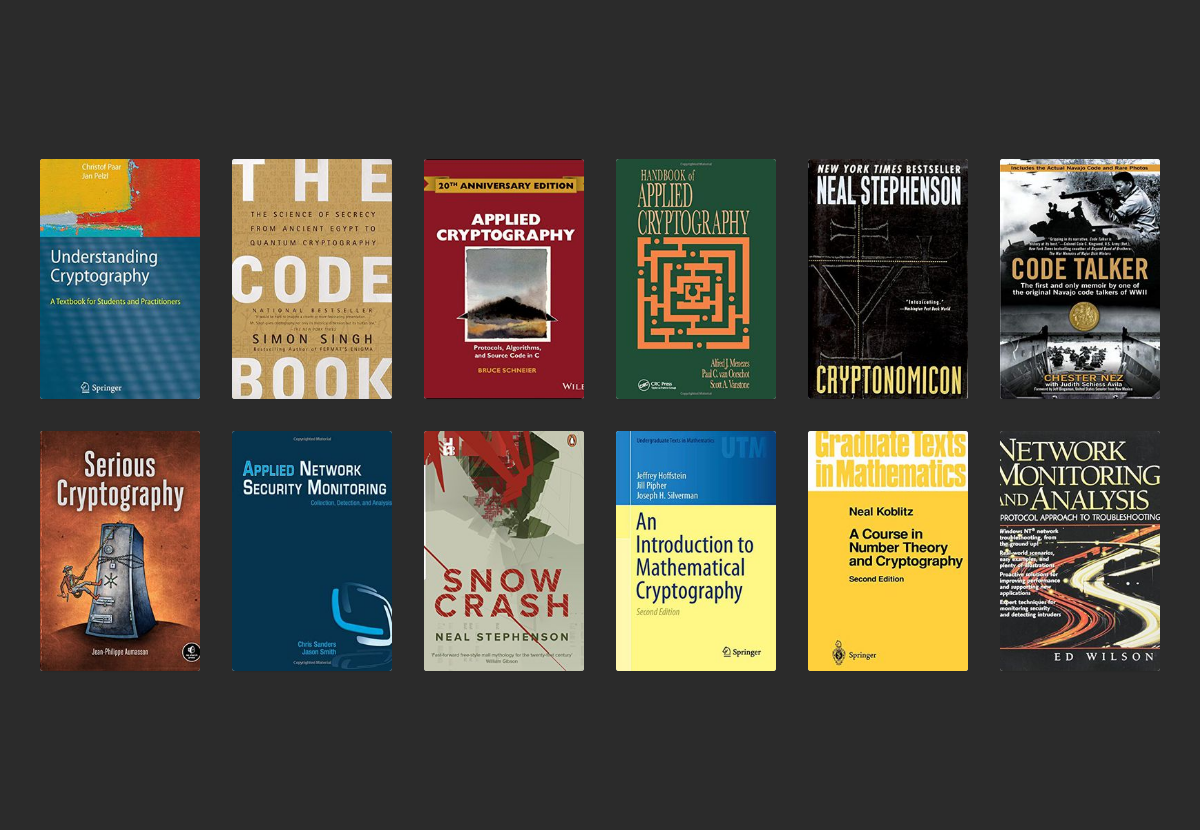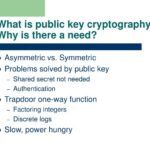Cryptography, the art and science of securing communication and information, has fascinated minds for centuries. It merges mathematical theory, computer science, and a touch of historical intrigue. But what is it about this esoteric field that captivates so many? Perhaps it is the allure of hidden messages and intricate codes, or the profound implications of data security in an ever-evolving digital landscape. This exploration seeks to unearth reference books that not only illuminate the principles of cryptography but also evoke an enduring passion for the subject.
One of the most consequential aspects of learning cryptography is its rich historical foundation. Books that delve into the origins of cryptographic techniques often serve as a gateway to understanding modern applications. A quintessential reference is “The Code Book: The Science of Secrecy from Ancient Egypt to Edward Snowden” by Simon Singh. This tome elegantly traverses time, beginning with the ancient ciphers of Egypt and culminating in contemporary encryption methods. Singh’s narrative is imbued with historical anecdotes that intrigue and educate, allowing readers to appreciate cryptography not just as a tool of secrecy, but as a reflection of the socio-political climate across ages.
Transitioning from the historical to the technical, “Cryptography and Network Security: Principles and Practice” by William Stallings is pivotal for anyone serious about the subject. This book transcends mere introduction; it is a comprehensive exposition of cryptographic protocols and network security measures. Stallings is meticulous in his clarity, making complex concepts accessible, yet he also challenges the reader to think critically about the vulnerabilities inherent in different systems. Such depth encourages a fascination not just with the mechanics of cryptography but with the delicate balance between security and accessibility.
Moreover, a profound understanding of cryptography can be cultivated through mathematical insights. “Introduction to Modern Cryptography” by Jonathan Katz and Yehuda Lindell achieves this with aplomb. This reference succinctly elucidates the mathematical principles foundational to the field, intertwining them with real-world applications. The authors adeptly guide readers through concepts such as probabilistic encryption and digital signatures, emphasizing not only how these mechanisms function but also why they are essential in contemporary society. The book’s rigorous approach promotes an appreciation for the underlying mathematical beauty that fuels cryptographic innovation.
As learners navigate through technical intricacies, they may encounter days of frustration where understanding eludes them. It is during such times that “The Art of Deception: Controlling the Human Element of Security” by Kevin D. Mitnick becomes an invaluable resource. While it focuses on social engineering rather than traditional encryption techniques, this book profoundly illustrates a crucial reality: people are often the weakest link in security. Mitnick’s narrative is both gripping and cautionary, reminding readers that an effective understanding of cryptography must account for human behavior. The blend of storytelling and practical insights captures the imagination, deepening the reader’s appreciation for both technological and psychological facets of security.
To broaden horizons, “Applied Cryptography: Protocols, Algorithms, and Source Code in C” by Bruce Schneier is lauded for its practical approach. A stalwart of the cryptographic community, Schneier presents intricate details of various algorithms and their implementations. His elucidation of practical aspects makes this book not just a study tool but also a functional guide for real-world applications. Readers find themselves enamored with the prospect of crafting their own secure systems, thus transforming theoretical knowledge into tangible skills.
As digital landscapes perpetually evolve, so too does the need for updated knowledge in cryptography. “Cryptography: Theory and Practice” by Douglas R. Stinson serves as an excellent bridge between foundational principles and advanced study. This book is notable for its focus on both the theoretical frameworks and the practical applications of cryptography today. Stinson’s balanced approach ensures that readers develop a well-rounded understanding, making it clear why this field is not only relevant but pivotal in safeguarding modern communication.
For those enthralled by the intersection of spirituality and technology, “The Cryptography Revolution: Uniting Technology and Human Potential” by Michael J. A. Haller offers a unique perspective. This work delves into the philosophical implications of cryptography, exploring how encryption shapes our digital identities and freedoms. Haller’s reflections prompt readers to consider not just what cryptography accomplishes but also its potential to empower individuals in a digital age often marked by surveillance and data exploitation.
Finally, no exploration of cryptography is complete without acknowledging its impact on cultural narratives. “Code Complete: A Practical Handbook of Software Construction” by Steve McConnell may not be strictly about cryptography, yet it encompasses vital lessons about systems design that resonate within the field. Its approach advocates for rigorous coding practices, an essential undercurrent for any cryptographic implementation. Readers may find themselves inspired to delve deeper into coding principles, thereby enriching their cryptographic understanding.
In conclusion, the realm of cryptography is as expansive as it is compelling. With a variety of reference books available, the journey through both historical contexts and technical intricacies becomes an enriching exploration. Each of these selected texts contributes to a burgeoning love for the subject, inviting readers to unlock not only the codes that safeguard our information but also the very essence of trust and security in our interconnected world. For those intrigued by the cryptographic realm, these books provide pathways to mastery, fusing knowledge with an enduring passion for the fascinating world of cryptography.








Leave a Comment